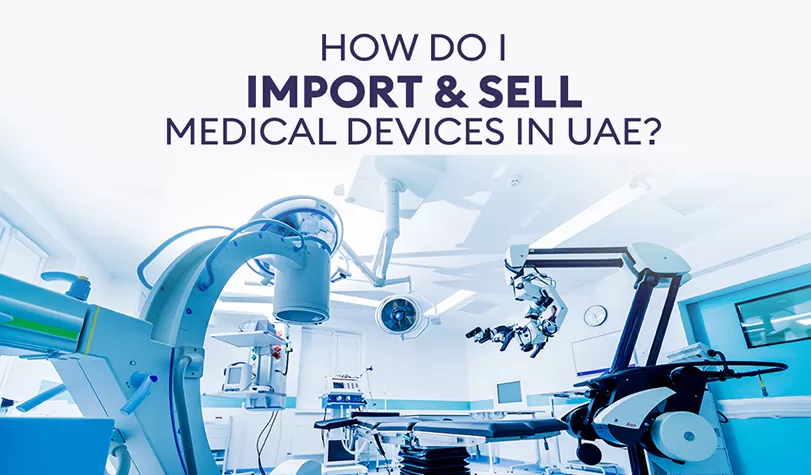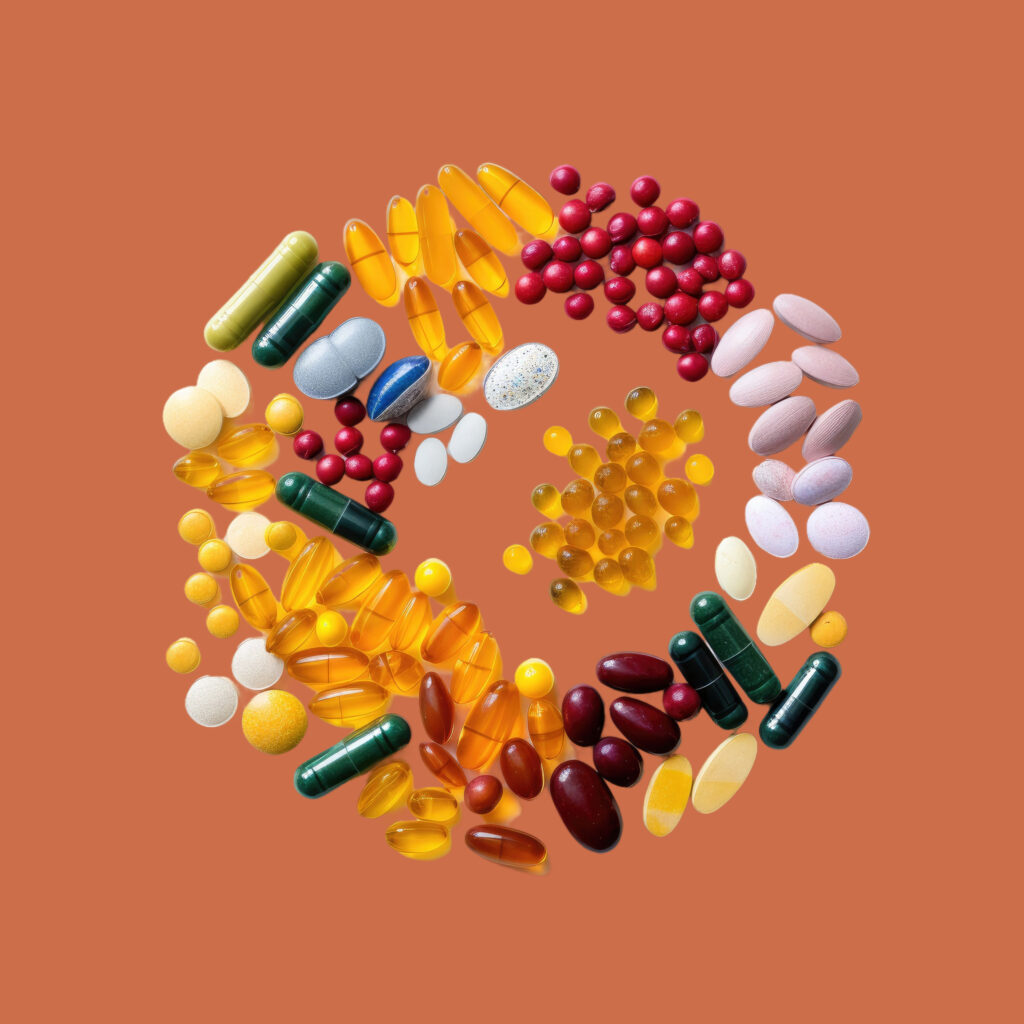
The Ministry of Health and Prevention (MOHAP) plays a pivotal role in safeguarding the public’s health in the UAE by overseeing the registration of medical devices. Their primary objective is to ensure that all medical devices introduced to the market meet rigorous safety and effectiveness standards. This commitment to stringent regulation is not just a matter of compliance; it’s a cornerstone of public health in the UAE, aimed at providing access to safe and beneficial medical devices while simultaneously preventing hazardous or ineffective products from entering the local market.
General Overview of the Ministry of Health, UAE
Guidelines for medical device registration have been released by the Ministry of Health. The requirements for submitting a request for regulatory approval are outlined in the Registration Guidelines. The registration process aims to give patients access to potentially helpful medical devices while preventing hazardous or ineffective ones from entering the local market.
The Ministry’s development of the requirements for medical device registration is aimed at international standards. The Registration Guidelines note that the different registration requirements closely resemble laws and regulations around the world, including the US Food and Drug Administration Guidelines and the EU Medical Device Directive (93/42/EEC). As an example, the definitions of several terminology used in the Registration Guidelines substantially reflect those found in the EU Medical Device Directive.
What is a Medical Device?
We must first have a clear knowledge of what the UAE considers to be medical equipment before delving into the specifics of its registration process. A medical device is defined by the Ministry of Health and Prevention (MOHAP) as “any instrument, apparatus, implement, machine, appliance, implant, reagent for in vitro use, software, material, or other similar or related article.”
The intended use of the medical device must fall within one of the allowed uses, which includes treating, identifying, or preventing diseases or injuries. It also includes everything that controls the source or sanitizes these devices, as well as anything that examines, reports, supports, or replaces living systems or a life-supporting technique. Finally, it includes all equipment designed for in-vitro testing on a body part.
Key Considerations for Registering Medical Devices in Dubai
Before embarking on the journey to register a medical device in Dubai, UAE, there are some crucial considerations to keep in mind. These considerations are fundamental to ensuring that the medical device registration process in Dubai, UAE, adheres to regulatory standards and safeguards public health.
It’s imperative to understand and comply with these requirements to successfully follow the registration procedure. The aspects to remember are:
1. Authorized Parties
UAE regulations grant exclusive registration rights only to either the Medical Device Manufacturer if it operates within the UAE or its Local Representative. The Local Representative can only act on behalf of the manufacturer when duly authorized.
Foreign business owners can register a medical device in Dubai. For that, a UAE-based business must be chosen by foreign manufacturers to serve as the Authorized Representative. The facility the Authorized Representative owns must have a Pharmacist in Charge (PIC) who is licensed to practice pharmacy in the UAE. The PIC is also in charge of the facility. The Authorized Representative must be authorized by MOHAP.
2. Application Responsibility
The responsibility to submit an application for medical device registration lies with the device manufacturer or its officially appointed Local Representative. The Local Representative must have explicit authorization from the manufacturer to manage the application process and uphold the manufacturer’s legal obligations for introducing the medical device to the UAE market.
3. Medical Device Classification
The Registration Guidelines categorize medical devices into four classes. This classification considers factors such as the intended usage duration and the device’s invasiveness on the human body.
Classification of Medical Devices
Medical devices are divided into four types, based on the degree of danger or risk involved in their use. Factors such as invasiveness and treatment duration also play a role in this classification. The classification affects the required documentation. Applicants must comprehend these classes in order to submit an application for medical device registration in the UAE. RIZ & MONA CONSULTANCY can help to ensure that all products comply with the demands of the health authorities. The classes are:
- Class I (Low-risk devices)
- Class II (Low-to-moderate risk devices)
- Class III (High-to-moderate risk devices)
- Class IV ( High-risk devices)
4. Registration Process
Depending on the device’s classification and its approval status by regulatory bodies in other regions, the Ministry’s Committee on Medical Device Registration will assess the application through either a one-stage or a two-stage process. The Committee’s evaluation will determine if a certificate of registration can be issued based on the submitted materials, or if further evidence regarding safety and effectiveness is required for a final decision.
Required Documents for Medical Device Registration
Depending on the classification of the device as well as the formally submitted official application form, the necessary documents are as follows:
- The Declaration of Conformity (DoC) certifies the device’s compliance with regulatory requirements and standards, containing information about the accessories, manufacturing site, UPNs, and device type.
- Copies of all documentation, certificates, and letters demonstrating regulatory clearance or approval for exporting, manufacturing, importing, and selling the medical device.
- Evidence of established systems and procedures for maintaining distribution records, reporting adverse incidents, handling complaints, and conducting recalls.
- A Free Sale Certificate from the manufacturer’s country of origin, indicating that the medical device is free and easily available for sale in that country.
- Evidence of performance and safety, clinical evaluation reports, and relevant clinical trial data to support the medical device’s efficacy and safety.
- Detailed product and production information, including material specifications, manufacturing processes, facility details, precautions, instructions for use, potential adverse events, device descriptions, intended use, indications, contraindications, warnings, shelf-life stability, alternative therapy, device labeling, and information about human or animal tissue content. This should also include formulations, types, sizes, models, accessories, usages, side effects, warnings, contraindications, usage guidelines, and visuals like user manuals, packaging covers, and brochures.
- Scientific literature about the device was reviewed by a peer.
- Pricing information, such as the retail price in the country of origin, wholesale price in the country of origin, and ex-factory price.
- A comprehensive risk assessment, including risk reduction measures, evaluation, analysis, and in-depth information on effectiveness and safety studies. This includes software validation studies where applicable, process validation studies, pre-clinical and clinical studies, a bibliography of published reports related to the device, and literature studies, along with summaries and conclusions.
- Objective evidence regarding the medical device’s biological safety.
- A declaration confirming the applicant’s full responsibility for the medical device and its post-market plan, the accuracy of the submitted materials as well as a commitment to comply with the requirements of the Drug Control Department (DCD) of the Ministry after the device is introduced to the market.
- Stability studies are essential and should demonstrate the device’s validity, performance, and safety over time, considering its functional, physical, and chemical properties.
- A copy of the manufacturer’s ISO certification or the ISO 13485:2016 certification indicates compliance with international quality management standards.
- Details of the CE MAark Certificate or the Quality Management System used during the manufacturing process, including assurance procedures and quality control.
- Copies of documentation and certification confirming quality systems in manufacturing and design, effectiveness and safety requirements, and conformity to product standards.
- Information about the date of the medical device’s first introduction and use, a summary of reported problems with the device since its introduction, a list of countries where the device is marketed, and details of respective regulatory status.
- Authenticated copies of certificates showing governmental approval of the medical device’s manufacturing facility in the country of origin.
The Registration Guidelines are relatively prescriptive in terms of how the paperwork is gathered, prepared, and submitted, and all documents, including certifications, should be in either Arabic or English language. This is important to keep in mind when discussing formalities.
Medical Device Registration Process in the United Arab Emirates
The Ministry of Health and Prevention (MOHAP) oversees the regulation of medical devices via the Registration and Drug Control Department (DCD). The process of registering medical devices in the UAE involves several key steps to ensure compliance with regulations and safety. It also ensures that medical devices meet the necessary quality and efficacy standards before they can be imported and traded in the UAE. It’s essential to follow each step strictly, as it guarantees that the device is fit for use in the country.
Here’s a simplified breakdown:
1. Get a License from MOHAP
Before starting the registration process, it’s crucial to have a valid license from the Ministry of Health and Prevention (MOHAP). This license is mandatory for any entity involved in the import and trade of medical devices.
2. Documentation and Application
Submit the application for product registration to the MOHAP, which is the competent authority in this regard. The complexity of the application depends on the device’s classification.
To do so:
- Register and sign up for the e-services, create a username and password (if not registered already), and then access the online platform.
- Once you have met all required conditions and submitted the fees, apply for product registration.
3. Evaluation and Approval
MOHAP reviews the application and evaluates the device’s safety and efficacy. If approved, a certificate and identification number are issued.
4. Ongoing Compliance
To maintain compliance, the relevant technical and ministerial committees may request additional information.
5. Principle of Safety and Performance Checklist
The Principle of Safety and Performance Checklist is a thorough list of standards and specifications that medical device makers must take into account and address throughout the development and testing of their products. It makes sure that medical devices adhere to the appropriate performance and safety requirements to safeguard the health and well-being of users and patients.
6. Certificates Validity
Certificates of registration are typically valid for five years from the date of review. For locally made pharmaceutical products, pharmaceutical certificates are valid for one year from the date of issue.
The Drug Registration and Control Department defines some high-risk devices (III, IV, and implantable) that demand special care as requiring post-marketing monitoring reports to be submitted every two years in order to maintain registration validity.
7. Eligible Entities
Only the medical device manufacturer or their authorized local representative can initiate the registration process in the UAE.
8. Post-Market Surveillance
Compliance with post-market surveillance procedures is crucial once the medical device has been registered. This includes creating a procedure for managing complaints, keeping track of unfavorable incidents, and informing the regulatory authorities of any problems as soon as possible.
Cancelation of Medical Device Registration
If the registrant asks for the cancelation of device registration or if there are compelling reasons to do so, the Ministry’s Drug Control Department (DCD) can do so. We anticipate situations warranting cancellation to include, for instance, adopting unapproved labeling, failing to fulfill post-market obligations, violating the intellectual property rights of a third party, or a product proving to be unsafe or degrading in quality from when the application for regulatory approval was submitted.
What are the medical device classifications in Dubai?
Here is the medical device classification in Dubai, United Arab Emirates:
- Class I (Low-risk devices)
- Class II (Low-to-moderate risk devices)
- Class III (High-to-moderate risk devices)
- Class IV ( High-risk devices)
How much does it cost to register a medical device in UAE?
The cost to register a medical device in the UAE depends on various factors.
What is the medical device law in the UAE?
According to UAE legislation, the Medical Device Manufacturer, if based in the territory, or, if not, its Local Representative, who may only operate on behalf of the former with prior authorization, are the only parties entitled to carry out device registration.

Ministry of Health Products Registration | MOH Product Classification

Medical Device Registration in the UAE

Health Supplement Registration in Dubai | Dubai Municipality

Food Product Registration in Dubai | Dubai Municipality

Public holidays | Dubai Holidays | 2025 - 2026
![The 5 Best Banks for a Savings Accounts in Dubai [2025 ]](https://dubaipartylife.com/wp-content/uploads/2024/11/The-5-Best-Banks-for-a-Savings-Accounts-in-Dubai-1024x681.jpg)
The 5 Best Banks for a Savings Accounts in Dubai [2025 ]


